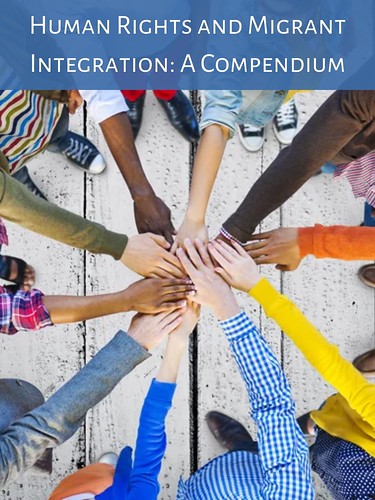The promotion of inclusivity and building a strong community is extremely important in our incredibly interconnected and diverse world. Imagine you have just arrived in your new country, Scotland, after looking for safety by fleeing your home country.
You are unsure where to start with language, employment, education, groceries, housing, and cultural integration.
While the Scottish Government offers services, such as the New Scots Integration Strategy and the UK-wide Resettlement Scheme, local organisations provide many services to offer further support where needed. One such organisation is Forth Valley Welcome.

Forth Valley Welcome is a shining example to the power of community spirit and the determination individuals have in making the region a welcoming place for all. This charity offers a lifeline for vulnerable individuals and families who have migrated to Scotland and resettled in the Forth Valley area.
This article will delve into the remarkable work carried out by Forth Valley Welcome and the charity’s commitment to fostering inclusivity and social integration.
A Sanctuary of Support
Forth Valley Welcome is a charity which supports New Scots as they begin their new life in the Stirlingshire and Clackmannanshire area. This group was formed in June 2015 as Stirling Citizens for Sanctuary and became a charity in March 2016. After more families arrived in Scotland, staff members were recruited, and by 2018, the name was changed to Forth Valley Welcome. Since then, the charity has grown, and more members of staff have been taken on to facilitate the New Scots being welcomed into Scotland.
Forth Valley Welcome’s main mission is to welcome and integrate, support and partner, as well as advocate for newcomers in the Forth Valley region. They aim to allow migrant families to be welcomed, build their own contacts, and integrate within their new community. Their volunteers address the unique needs and challenges faced by New Scots and offer support where needed.
Recently, I was given the opportunity to speak to the treasurer and fundraising team leader of Forth Valley Welcome, Mr. Hugh Grant. We discussed the rights of migrants, the fantastic work of Forth Valley Welcome, and suggestions to further improve the integration process for New Scots for the protection and enhancement of their human rights.
Integration and Support
Forth Valley Welcome works to both ensure that newcomers have the support they need and to feel welcomed. They provide practical support, present information as needed, and offer resources (such as clothing in their Clothes Hub) to help New Scots adapt to their new lives in Scotland.
The charity offers a variety of services to help New Scots integrate into Scottish life. Home visitors are offered to New Scots; they are volunteers who help support with everyday tasks, such as navigating a new area and using public transportation.
Additionally, the organization has set up Conversation Cafés to offer New Scots the opportunity to meet, connect, and discuss daily life with one another in English. These cafés allow for migrants to practice and expand their English language skills while making new friends and learning more about each other and the community they live in.
Whether it’s finding housing, accessing healthcare, learning to drive, going to the gym, or navigating other local services, support is there for New Scots every step of the way.
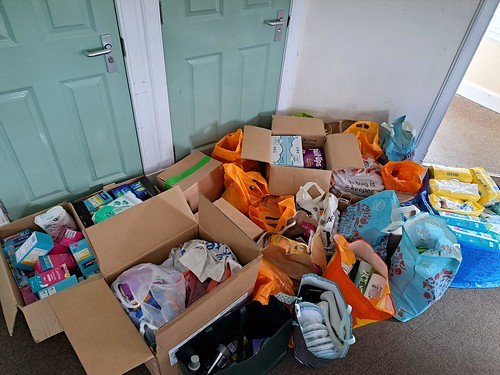
Language Empowerment and Employment
Communication is key for integration, which Forth Valley Welcome recognises. To that end, they offer as much support to New Scots as possible when it comes to building confidence in using English in everyday life. This sits alongside the ESOL classes run by Stirling Council and Clackmannan Council. The charity provides conversation cafes and language learning resources to newcomers, helping them build on their language skills so that they are able to communicate and engage with their local community. These language resources provided by Forth Valley Welcome also offer further access to opportunities for employment and education.

Proficiency in the local language facilitates for effective communication, access to services, and further empowers New Scots to connect with others and in community life. Language skills do not only reduce isolation, but also promote a cultural understanding which will enable individuals to lead enriched lives in their new environment. Forth Valley Welcome’s services, such as Conversation Cafés and Walk & Talk, allows the opportunity for New Scots to practice their English with one another; this would otherwise be difficult to find.
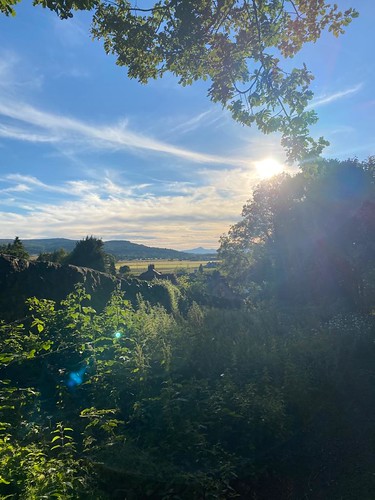
When discussing language facilities with Mr. Grant, he noted that English language abilities and employment interlink with each other. He explained that while the New Scots strategy acknowledges that these needs require the facilities for newcomers to learn and grow, more support should be provided by the Scottish Government to help Councils and Colleges deliver a consistent high quality of language learning. This could also help New Scots find employment more quickly.
Adults naturally take longer than children to learn a new language, meaning more facilities need to be in place for them to successfully absorb the English language. While charities such as Forth Valley Welcome help New Scots to improve their language skills, staff and volunteers have found that further resources need to be offered by the Scottish Government, local authorities, and colleges to enable New Scots to reach a reasonable proficient level of English within their first year here.
Making language facilities and services accessible means that individuals will be able to settle into the community and find employment more quickly. It is crucial to make information regarding language services as accessible as possible for migrant adults and children. Forth Valley Welcome keeps this in mind when offering their services through advertising them online through social media, flyers, local events, and community partnerships.
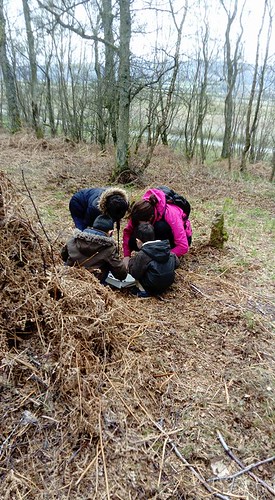
If information on language learning opportunities continues to be less accessible to individuals, it will take longer for them to integrate with their local community. Integration helps migrants find employment and earn a livelihood, which is a fundamental human right. Learning the language also helps ensure that they are not subjected to labour exploitation or discrimination, and can enjoy economic security in their new home.
With regards to employment, Mr. Grant observed how long it takes New Scots to get into substantive employment. He noted that the Scottish Refugee Council is doing good work to support migrants in finding employment opportunities across Scotland. However, he noted that more could be done by the Scottish Government to offer New Scots easier routes to find employment. This can be done through providing New Scots with the resources they would need to fill jobs that the government wants to fill, such as the care, hospitality, and driving sectors.
Cultural Exchange
Celebrating cultural diversity is at the heart of Forth Valley Welcome’s mission. Not only does the charity offer the Conversation Cafés, but they also organise outings and provide tickets for family activities. This fosters an environment for people from different backgrounds to come together and share their traditions, stories, and experiences.
Opportunities like these can promote an understanding of one another and allow individuals to make lasting friendships.
Cultural exchange opportunities are not only beneficial to New Scots while they integrate into Scottish society, but also for the community itself. Cultural exchange is a powerful tool for creating inclusive, open-minded, and vibrant communities.
It encourages the celebration of diversity and the recognition that a community is stronger when it embraces and learns from a variety of cultural backgrounds, traditions, and perspectives.
Through the services Forth Valley Welcome’s Home Visitors offer, there is a rich opportunity for locals and New Scots to exchange cultures and benefit from learning from one another. Mr. Grant pointed out that this promotes diversity, inclusivity, and understanding of one another. Cultural interaction encourages respect and appreciation for diverse traditions and beliefs. The Home Visitor volunteers at Forth Valley Welcome have been able to foster connections with the New Scots they are supporting and create friendships across cultures. This has strengthened social bonds and contributes to a more vibrant and united community. Cultural exchange is truly beneficial to everyone involved.
Because of this important work from Forth Valley Welcome, the region is richer in diversity and has an array of cultures to celebrate.
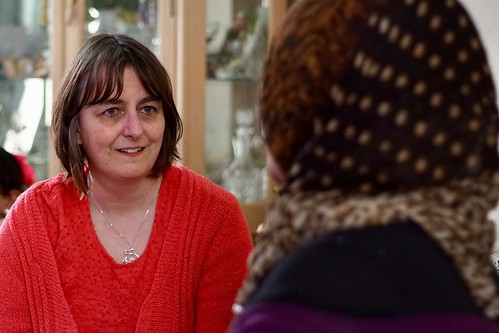
Community Engagement
Building a sense of community is extremely important for social cohesion. Forth Valley Welcome encourages New Scots and long-time residents to actively participate with one another in events and community projects. This engagement helps build bridges amongst locals and newcomers, as well as closes cultural and social gaps between each other.
Through the support from Forth Valley Welcome, many newcomers are able to thrive amongst locals in the region. This creates the opportunity for parents to secure employment faster, children to excel in schools easier, and for families to find stability and a sense of belonging in their new home.
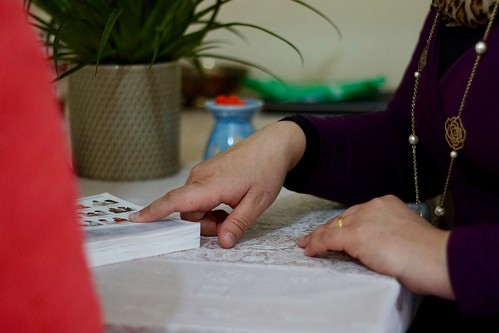
Mr. Grant discussed with me that integration efforts often include support for learning the local language and understanding the culture. To have access to crucial integration services, such as offering further support to improve language proficiency community integration resources, New Scots are able to exercise their cultural and linguistic rights, including preserving their own cultural identity while participating in the host society. He pointed out that cultural barriers can often be a challenge to the charity and to Councils, as individuals from non-western cultures sometimes do not realise the importance of attending or accessing any of the integration services provided to them.
Due to this, the charity finds that it can sometimes be challenging provide the support newcomers would need to integrate and promote their social inclusion. To integrate into the fabric of the host country’s society means to actively engage in civic life, express opinions, and participate in community activities, all of which are fundamental to one’s human rights.
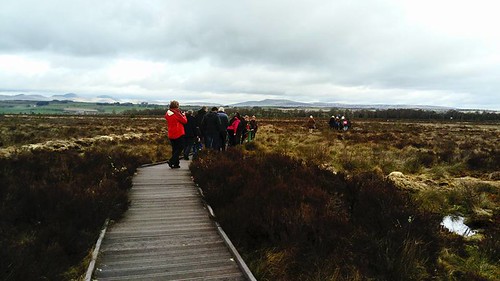
Working together
Mr. Grant noted that Forth Valley Welcome wants to have migrants as involved as possible in the charity to ensure that staff and volunteers are doing everything they can with the resources available to the charity to create a welcoming environment for newcomers. The Board now has one New Scot as a full member and one as an advisor on support for Ukrainians. With Council funding, it also has one staff member from Ukraine on a 9-month internship, focusing on employment support.
Forth Valley Welcome worked together with a social enterprise called Media Education on a joint bid with the Scottish Refugee Council. Mr. Grant said, “I really liked their approach; we planned a project that would involve some of our New Scots as participants in decisions on the contents of the videos, and then in road testing the videos. One of their principles was to treat the New Scots as co-producers, and to pay them not just for their expenses but for the time spent in meetings.”
This is another excellent example of how organisations and individuals can work together with New Scots to make integration services more accessible and effective for everyone involved.
As we were discussing this, he also mentioned the work of Nadin Aktaa, a Syrian woman. She runs a project hosted by Edinburgh University which helps to encourage Scottish local authorities to have a better understanding of Syrian culture, religion, and traditions. This project also offers support to Syrian families integrating in Scottish culture and giving them further assistance to settle into their new home.
Mr. Grant also promoted a further project run by Ms. Aktaa, called Syrian Futures. He noted, “It’s a project she did with Media Education. I remember now that though our bid for a joint project with Media Education was unsuccessful, another one they had bid for was successful and have now just found out what that was all about! It looks fascinating.”
Through looking at this project and watching the short films produced by young Syrian refugees, much can be learned about their thoughts and experiences of living and integrating in Scotland. These short films offer an insight into the achievements of these New Scots and gives locals an insight to what it really is like to integrate into Scottish communities.
Room for Growth
I also had an interesting discussion with Mr. Grant about what can be done to further improve the integration process for New Scots for the protection and enhancement of their human rights.
He felt there was a growing understanding by the Scottish Government, local authorities, and support organisations of the need to actively have migrants involved with the process of setting these services up to make them as effective as possible. There is a huge importance in hearing the voices of the service users, as this will effectively recognise what they can bring to the table and offer a sense of acceptance to New Scots.
As mentioned before, the Scottish Government has good intentions with supporting newcomers into Scotland. This can be seen with the creation of the New Scots Integration strategy, which is a joint production with the Scottish Refugee Council and COSLA (Convention of Scottish Local Authorities).
However, Mr. Grant felt that there are important areas where improvement is possible, especially with regard to language learning and employment. With that in mind, he welcomed the recent news that the Scottish Government is about to run a major consultation with “public services, third sector organisations and community groups,” and a subsequent consultation with New Scots, to update a revised strategy.
In the light of experience in applying the 2018-22 strategy, he hoped that the consultation will lead to more being done at national level. He hopes that this will result in more support for more progressive English language learning on a consistent basis nation-wide. Additionally, Mr. Grant noted that he wishes for the revised strategy to facilitate further access to substantive employment which acknowledges and accepts New Scots’ prior experience and qualifications. For example, the Scottish government takes note of Scottish sectors which have a shortage in staff; these sectors include hospitality, driving services, and care services. Mr. Grant felt that more can be done by the Scottish government to offer New Scots the support they need to fill in the skill gaps which are needed in these sectors.
At the moment, charities such as Forth Valley Welcome are doing all they can to offer sustained support in integration for migrants across the Forth Valley region of Scotland. This ensures that migrants have economic opportunities, access to essential services, and foster opportunities to articulate and foster a sense of belonging.

Positive Impact
The impact of Forth Valley Welcome has been amazing. The staff and volunteers have not only enhanced the region’s reputation as welcoming, but have also offered the opportunity for the community to grow. Charities such as this one create a welcoming environment for individuals and families who have come to Scotland to seek safety and a home. Forth Valley Welcome is just one of many organizations across Scotland that have a group of committed individuals who want to bridge gaps and create a welcoming and inclusive community.
Every newcomer is not just welcomed, but also celebrated by them.
The encouragement of cultural integration and language proficiency ultimately contributes to the overall wellbeing of New Scots and the promotion of their human rights in Scotland.
The complete New Scots Integration Strategy can be found on the Scottish Government Website.
If you would like access to any of the resources Forth Valley Welcome has to offer or keep up to date with their progress, please find the details below:
Website – https://www.forthvalleywelcome.org
Facebook – https://www.facebook.com/ForthValleyWelcome/
Please click the photo below to read more articles in this series:
Esmee Johnston is the Human Rights and Migrant Integration Editor at Wandering Educators. Motivated by the desire to make a positive impact in the world, is currently studying her master’s degree in Human Rights and Diplomacy at the University of Stirling. This degree is taught in partnership with UNITAR, offering the opportunity for her to broaden her knowledge on human rights matters. She is very passionate about the human rights of migrants and the importance migrant integration has on this topic.

All photos courtesy and copyright Forth Valley Welcome, used with permission

